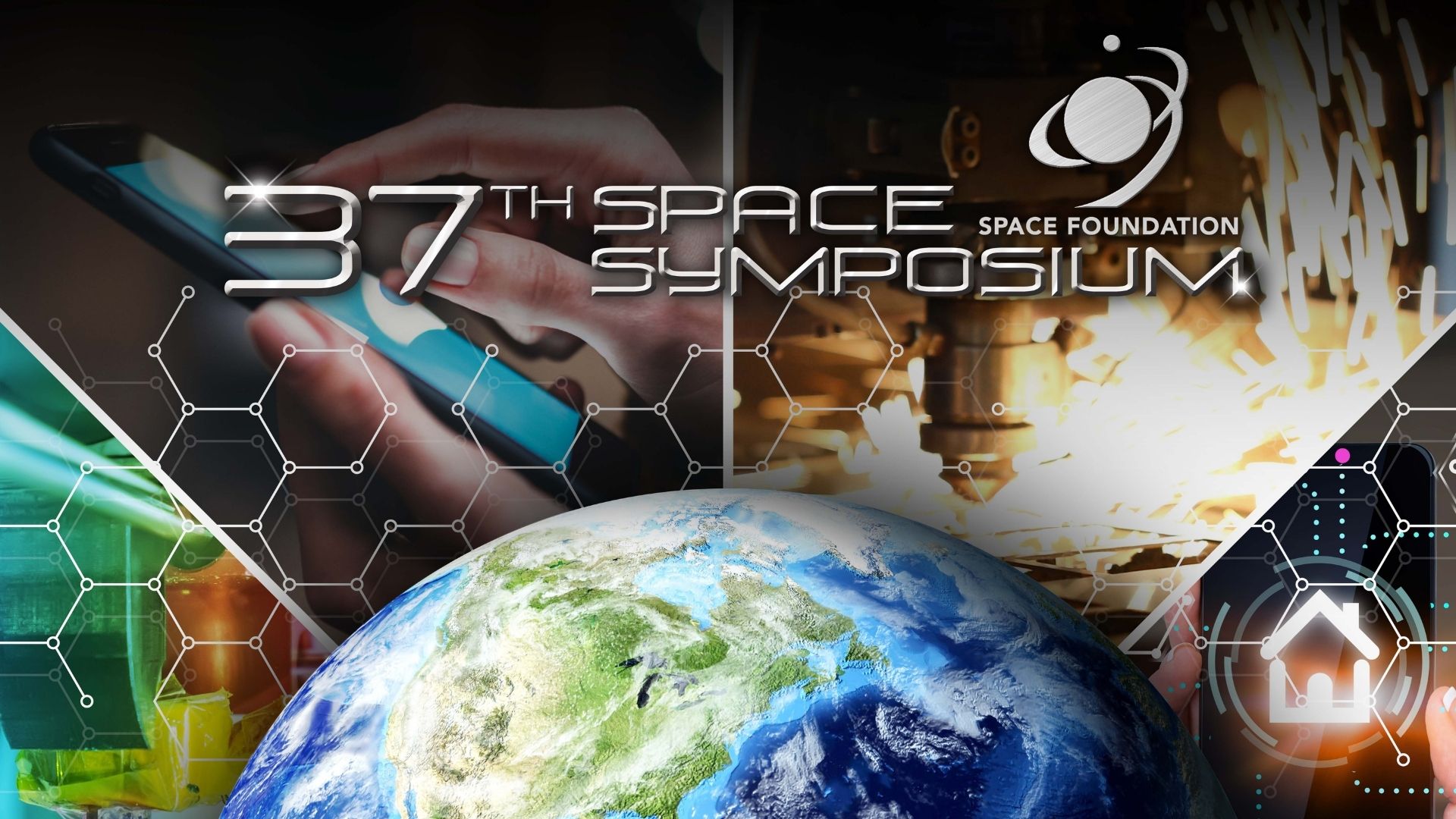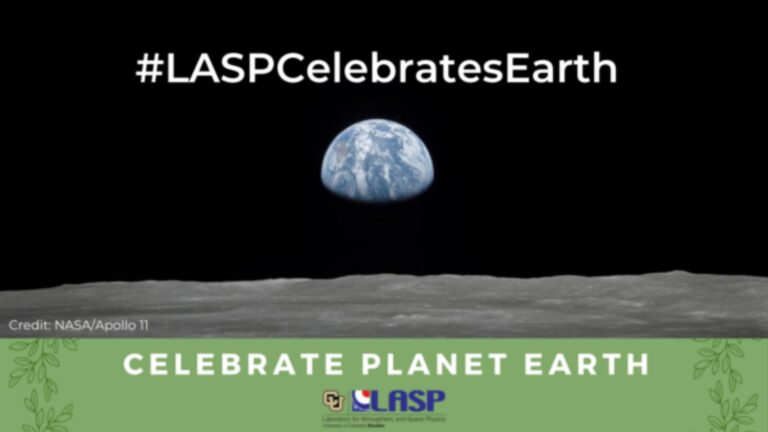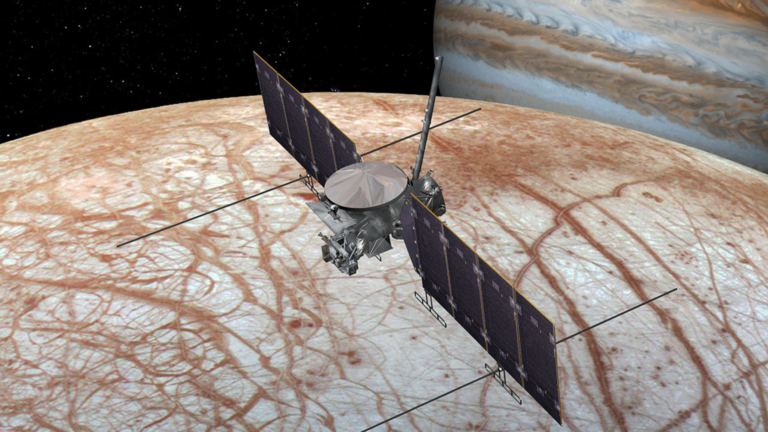
Colorado is at the forefront of America’s aerospace industry, and the University of Colorado (CU), the state’s only Tier 1 research institution, plays a fundamental role in ensuring the state remains there. This leadership will continue this week, when representatives from the Laboratory for Atmospheric and Space Physics (LASP) and other university affiliates participate in the 37th annual Space Symposium.
The international meeting, held in Colorado Springs, Colo., brings together thousands of participants from the civil, commercial, and national security sectors to discuss space-related issues, policies, and future directions. Representatives from LASP, the College of Engineering and Applied Science at the University of Colorado Colorado Springs (UCCS), and CU Boulder’s AeroSpace Ventures initiative are jointly hosting an exhibit booth to highlight CU’s prominence in aerospace engineering and climate and space-weather research, as well as the crucial role the university plays in developing the state’s aerospace workforce.
“The University of Colorado has created an environment in which engineering and Earth and space science researchers, faculty, and students can seamlessly collaborate with industry and government partners to develop the technologies of tomorrow,” says Terri Fiez, the vice chancellor for research and innovation at CU Boulder. “This spirit of cooperation benefits the CU system—and the entire state.”
Colorado’s $15.4 billion aerospace and defense economy is the largest per capita in the nation, and the state is home to more than 500 related businesses. CU is the #1 public university recipient of NASA research awards.
LASP, the University of Colorado’s largest space research institute, leads the nation in developing new technologies that underpin space-based climate research. The Lab’s innovative instruments, including one currently mounted on the International Space Station, are responsible for the longest and most fundamental of climate data records: the amount of energy the Earth’s atmosphere receives from the Sun. In addition, LASP is currently developing Libera, an instrument that will record how much energy leaves our planet’s atmosphere on a daily basis. The combined measurements will allow scientists to understand changes in Earth’s climate system, such as whether the planet is getting brighter or darker, and heating up or cooling down.
LASP also develops spacecraft and instruments for interplanetary missions and helps disseminate information about space weather that’s crucial to protecting America’s telecommunication, GPS navigation, and satellite-tracking capabilities. LASP manages several mission datasets related to space weather and conducts extensive research into its causes and effects.
“LASP continues to advance critical Earth system observations from space, developing a detailed understanding of Earth climate and Earth’s space weather in support of our nation’s security initiatives,” says Thomas Sparn, LASP’s director of engineering. “We are actively participating in NASA, NOAA, and DOD activities to ensure operational data is available for all humankind to secure and improve life on our planet.”
The College of Engineering and Applied Science at UCCS produces highly qualified undergraduate and graduate students with solid technical backgrounds plus crucial experiential learning. The college’s new Bachelor of Science degree in Aerospace Engineering, slated to launch this fall, will leverage the existing expertise in the Department of Mechanical and Aerospace Engineering. “The college will break ground on a new facility, the Anschutz Engineering Center, this summer to stand up the program,” says Sue McClernan, the college’s career and industry outreach program director. “Student and workforce demand prompted the new degree, and we believe the Bachelor of Science in Aerospace Engineering at UCCS is well suited for a thriving aerospace economy in Colorado Springs.”
AeroSpace Ventures is a collaborative entity that brings together researchers, students, industry leaders, government partners, and entrepreneurs to envision and create the future for space and Earth systems. “This initiative is helping to drive the discovery and innovation that will shape the 21st century’s economy,” says George Hatcher III, the managing senior director of industry relations at CU Boulder. “AeroSpace Ventures brings together CU Boulder departments, institutes, centers, and programs to amplify the more than $120 million in aerospace-related research that happens on campus each year.” CU Boulder also hosts the Center for National Security Initiatives, which provides high-impact national security research to government and industry partners and addresses the ever-increasing demand for qualified and experienced aerospace and defense professionals in Colorado and across the nation.
Among university research institutions, LASP is unusual in that it engages in the full cycle of space exploration, from asking scientific questions to designing, building, and operating instruments and analyzing the resulting data to answer them. The Lab is also a leader in developing SmallSat technologies and utilizing them to address key scientific questions. LASP, which began a decade before NASA was founded, is the only research institute in the world to have sent instruments to all eight planets—and beyond.
Written by Terri Cook – Lead of LASP’s Office of Communication Management



